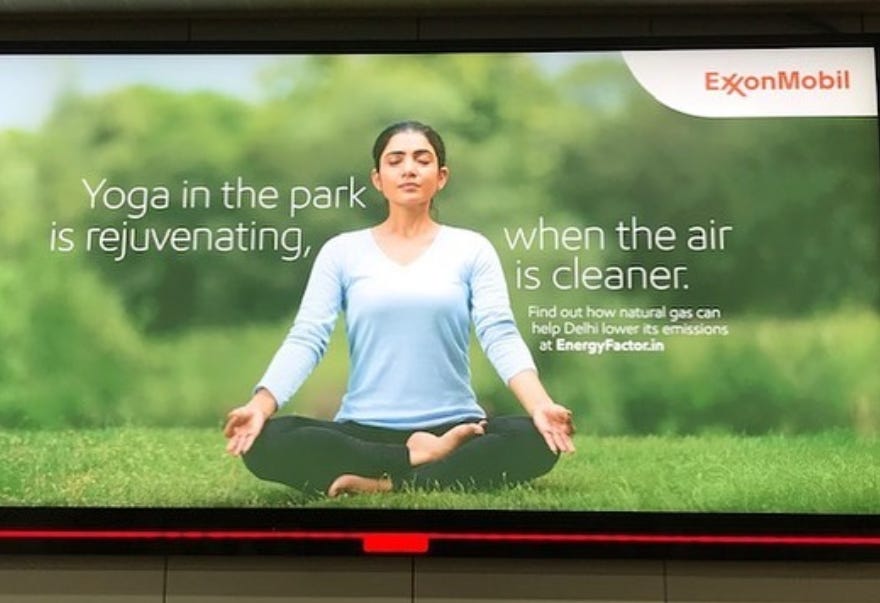Everything you wanted to know about The Guardian's historic ban on fossil fuel ads
An interview with The Guardian's interim chief executive Anna Bateson

There won’t be any of these in the Guardian anymore. Photo credit: @fossilfuelads
In yesterday’s issue of HEATED, I asked subscribers to tell me what they’d like to know about The Guardian’s historic decision on Wednesday to ban advertisements from fossil fuel companies.
The British daily—which has a history of setting standards for climate coverage—is n…


